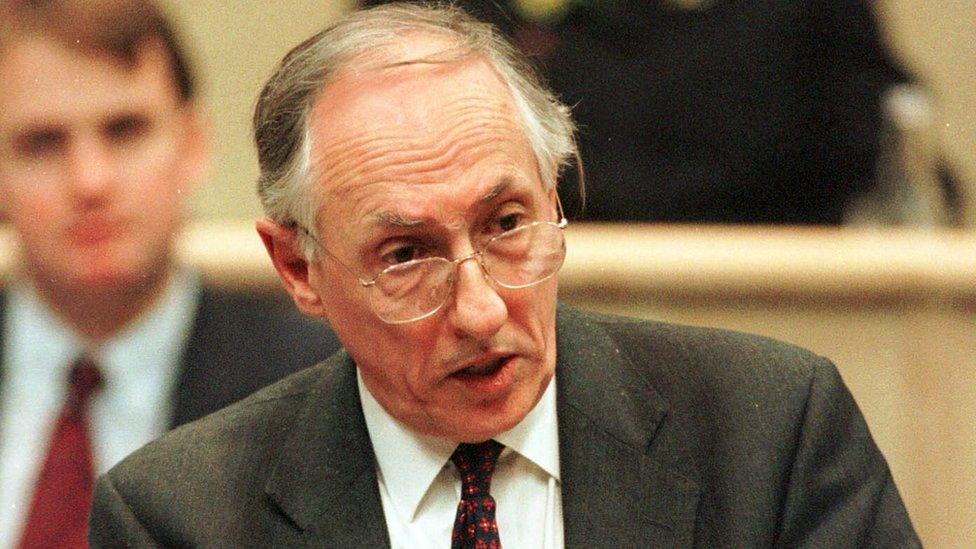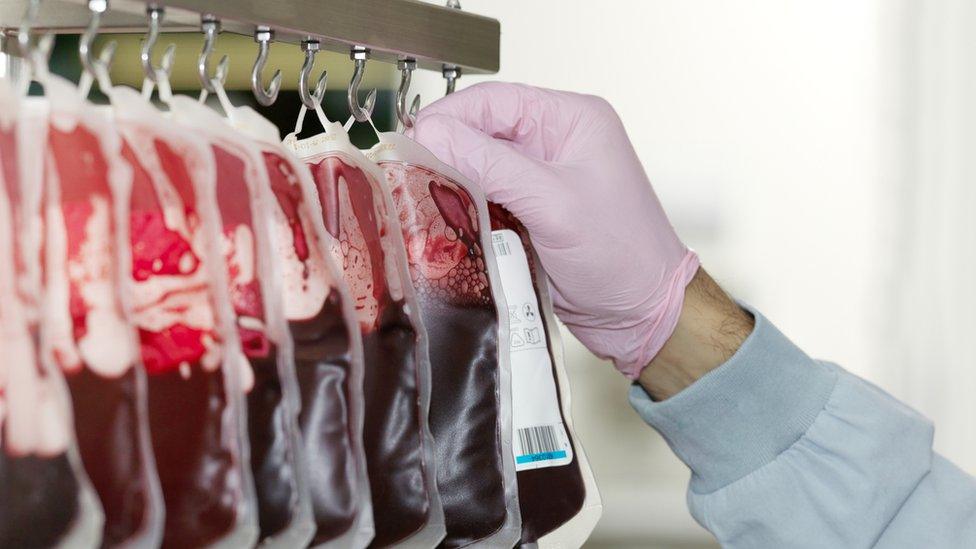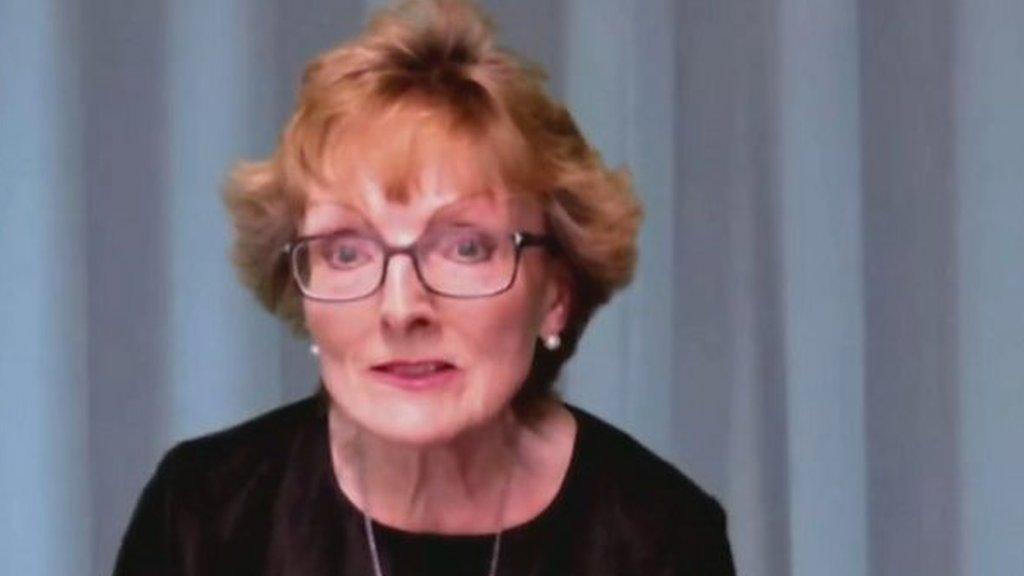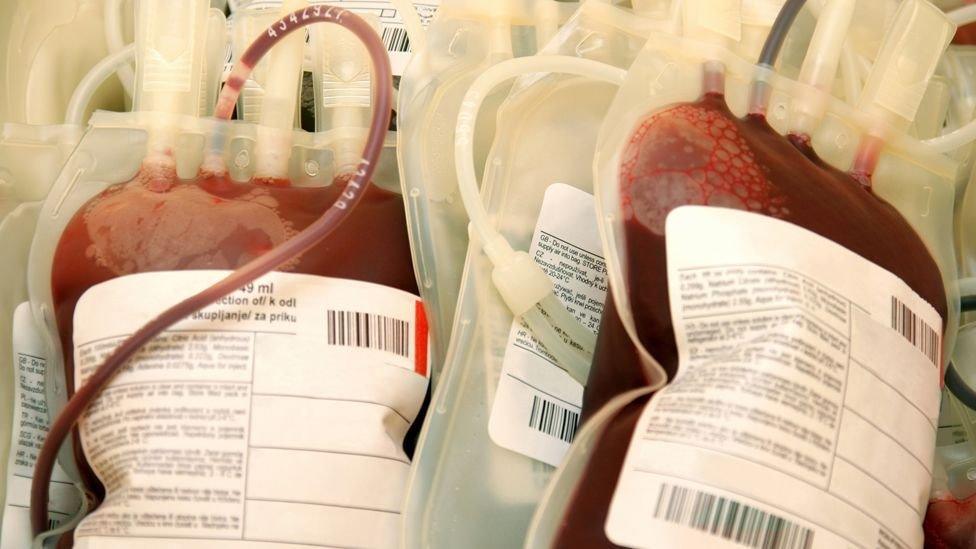Donald Dewar feared open cheque book over blood scandal
- Published

Former first minister Donald Dewar had concerns about providing compensation to survivors
Scotland's inaugural first minister Donald Dewar feared compensating people infected by contaminated blood could result in an "open cheque book".
The UK Infected Blood Inquiry was told that his concerns appeared in an email sent in September 1999.
In the 1970s and 1980s, about 3,000 people in Scotland contracted Hepatitis C and HIV through blood products used to treat conditions like haemophilia.
Those left with Hepatitis C did not receive financial support until 2004.
The blood inquiry was set up in 2017 to examine what has been called the worst treatment disaster in NHS history.
While many victims died others who were left with lifelong serious illness have provided evidence to the investigation which is being chaired by former QC Sir Brian Langstaff.
The Haemophilia Society has long believed that some of these infections could have been prevented and that between 1985 and 1987, the Scottish National Blood Transfusion Service was negligent in not using safer blood products.

More than 3,000 people in Scotland were infected with contaminated blood
Mr Dewar, who was Scotland's first minister following devolution, had faced demands to provide compensation to victims.
On Tuesday the inquiry heard Scottish ministers were against providing payouts because the NHS had not been found to be negligent or at fault.
The email sent on behalf of Mr Dewar, external on 23 September 1999 said he was "a little concerned about the possible financial implications and fears that an open mind could be taken to mean an open cheque book".
A handwritten note added that the then health minister Susan Deacon's office "advises that this is very much a PR exercise and there is unlikely to be any compensation paid". Ms Deacon is due to give evidence to the inquiry on Friday.
The email was sent nine days after the health minister had met with the Haemophilia Society, pledging that an internal investigation into the Hepatitis C infections would be open and transparent.
That probe concluded that no blame was attributable to the Scottish National Blood Transfusion Service.
Prof Aileen Keel told the inquiry: "I certainly don't agree with the use of term 'PR exercise'."
Prof Aileen Keel, a haematologist who held several senior roles advising government between 1992 and 2015, told the inquiry that victims of the scandal received the best treatment at the time.
However, she distanced herself from some of the comments in correspondence at the time.
Prof Keel said: "I certainly don't agree with the use of term 'PR exercise'.
"Undoubtedly, ministers were under great pressure to further investigate this area. And the Haemophilia Society undoubtedly had in mind compensation at the end of that period."
She added: "However, I don't think that means that the internal investigation was not conducted in an entirely proper way – finding out the facts, detailing the chronology so that we could really understand whether what the Haemophilia Society were alleging was true or not.
"So the use of this terminology does not tally with my recollection of that period around the investigation."
The inquiry before Sir Brian Langstaff continues.
- Published26 July 2022

- Published18 May 2021
